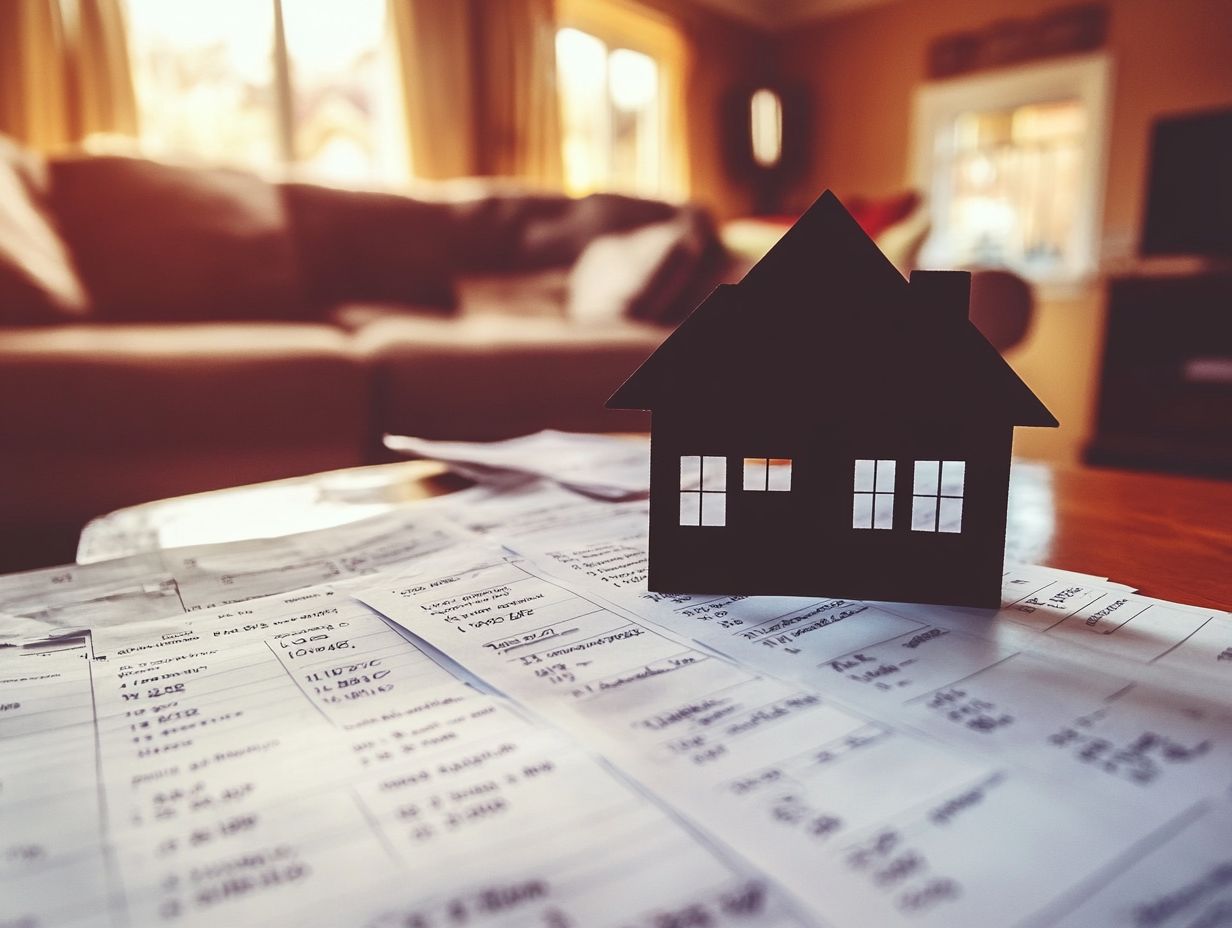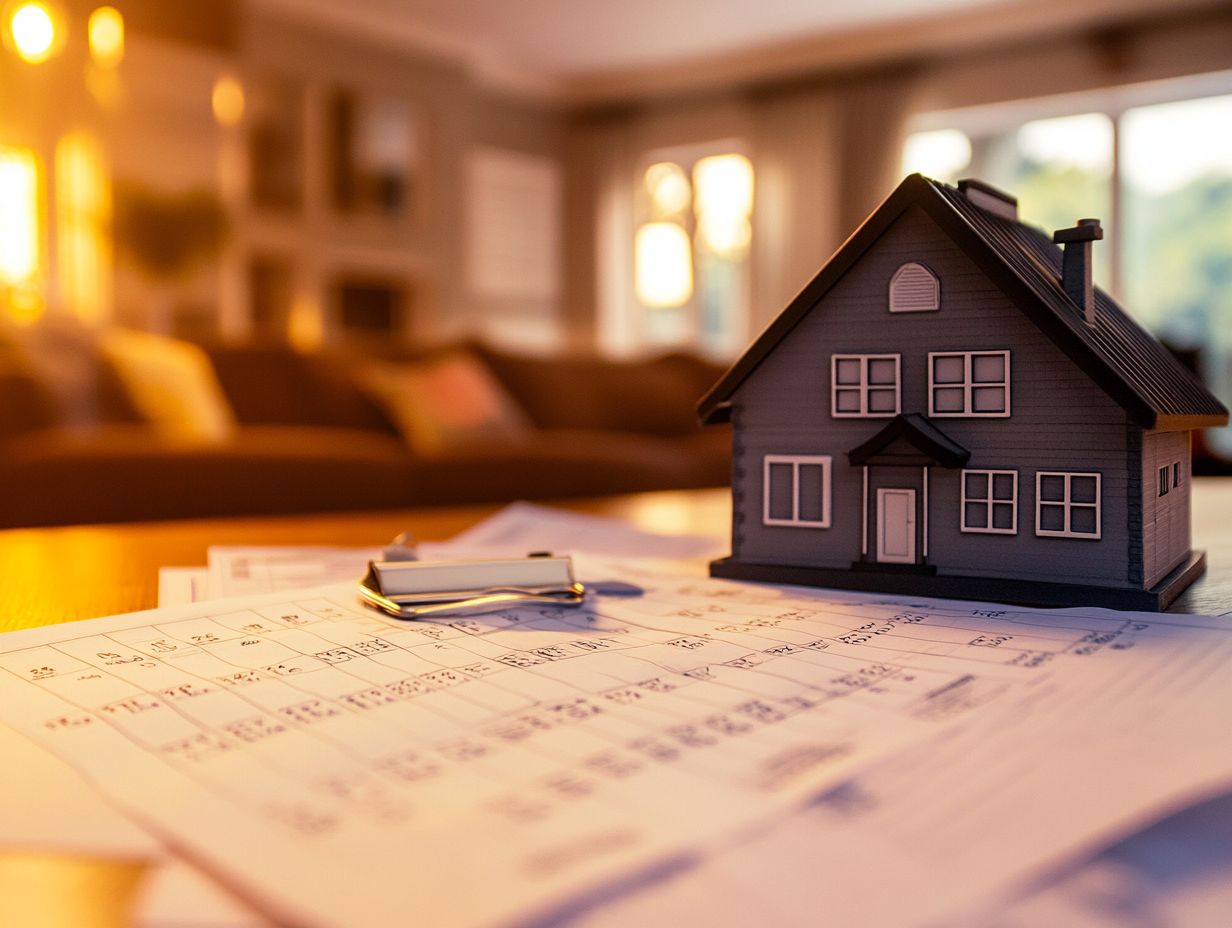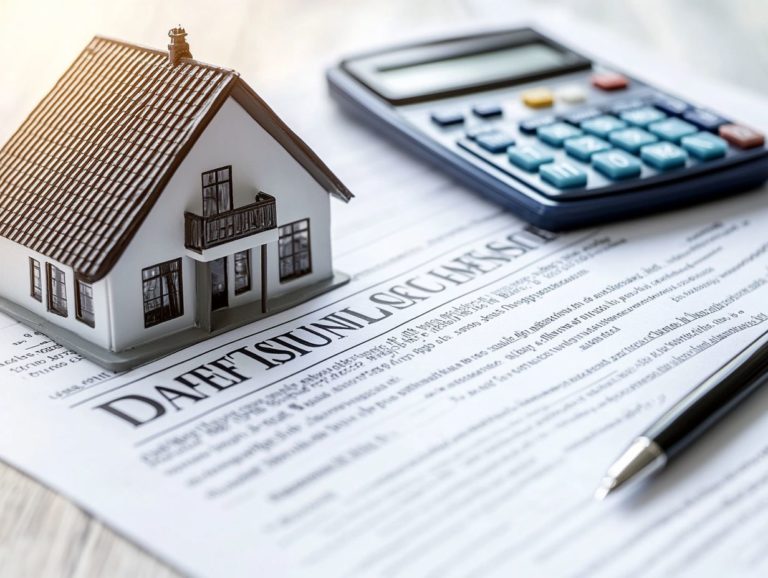What is the Policy Period in Home Insurance?
Understanding your home insurance policy is essential for protecting both your property and your financial well-being.
A critical element that often flies under the radar is the policy period. This specifies the time frame during which your coverage is effective.
Let s explore why understanding your policy period is crucial for your peace of mind. This article details what the policy period encompasses, its duration, and its implications.
It also examines factors that can influence your policy duration, helping you understand how to make informed decisions for your home.
Contents
- Key Takeaways:
- Understanding Home Insurance Policy Period
- What is Covered During the Policy Period?
- How Long is the Policy Period?
- What Happens During the Policy Period?
- Factors that Affect the Policy Period
- Frequently Asked Questions
- What is the Policy Period in Home Insurance?
- How long does the Policy Period typically last in Home Insurance?
- Are there any limitations to coverage during the Policy Period?
- What happens if I need to file a claim during the Policy Period?
- Can the Policy Period be extended?
- What happens if I let my Home Insurance policy expire?
Key Takeaways:

Your home insurance policy period is your shield against unexpected losses. During this period, your home insurance covers a range of events, including damage to your home, personal belongings, liability for accidents, and additional living expenses. The length of the policy period can vary, but it typically lasts one year and can be renewed annually. Changes in home value or ownership can affect the policy period and may require adjustments to your coverage.
Understanding Home Insurance Policy Period
The home insurance policy period determines how long your insurance coverage is active, safeguarding you from financial burdens from unexpected losses.
Throughout this period, the insurance company agrees to cover specific risks detailed in your policy such as property damage, liability coverage, and additional living expenses providing you with confidence.
By grasping the nuances of the policy period, you empower yourself to make well-informed decisions about your mortgage agreement. This ensures that your coverage limits align with your evolving needs.
Definition and Importance
The policy period in homeowners insurance is the specific duration during which your insurance policy is in effect. It plays a crucial role in shielding you from financial burdens of property damage and unexpected losses.
Understanding this timeframe is vital, as it directly impacts your overall insurance strategy. When you know the implications of the policy period, you can make informed choices about renewals and adjustments.
Clarity about your coverage limits during this period influences how claims are processed. If an incident occurs outside this window, you could face unexpected costs if you re underinsured.
Being mindful of the policy duration not only protects your property but also increases your chances of a seamless claims experience, aligning with a smart approach to risk management.
What is Covered During the Policy Period?
Throughout your homeowners insurance plan’s policy period, several elements protect you from potential financial setbacks. This includes coverage for your personal property, liability protection for incidents on your premises, and a clear outline of exclusions detailing what isn t covered. This ensures you understand your coverage limits and conditions.
You can also add insurance endorsements, which are additions to your policy providing extra coverage for high-value belongings or unique risks specific to your situation.
Inclusions and Exclusions

Homeowners insurance policies include a range of inclusions and exclusions that define what is covered during the policy period. This clarity helps you understand your liability coverage and protect your personal property.
Typically, inclusions cover damages from events like fire, theft, or vandalism, allowing you to recover losses. However, it s essential to recognize that certain natural disasters, such as floods and earthquakes, are often excluded, which can significantly impact the claims process.
You need to fully understand these distinctions, as they determine your coverage and outline your responsibilities during claims. By knowing what s covered and what isn t, you can better prepare for potential disasters and ensure you have the necessary supplemental insurance to safeguard your valuable assets.
How Long is the Policy Period?
The standard home insurance policy usually lasts one year. This gives you a chance to evaluate your needs before you renew.
This annual cycle is your opportunity to review your policy, consider changes in your mortgage, and negotiate premiums based on your situation.
Duration and Renewal Options
A homeowners insurance policy typically lasts one year. This time allows you to renew and reassess your needs as your life changes.
When it’s time to renew, take advantage of the annual review. Check if your current coverage truly protects your assets and addresses any life changes, like renovations or shifts in family size.
Remember, premiums can change due to various factors, including local market conditions and your claims history. Conducting a thorough insurance review before renewal is essential.
By doing this, you ensure that your coverage remains relevant to your changing lifestyle and financial situation, ultimately protecting your most significant investment.
What Happens During the Policy Period?
During your policy, you may face situations that lead to insurance claims. It’s important to understand the claims process and your responsibilities as a policyholder.
If property damage occurs like from natural disasters or fire working with an insurance expert is essential to evaluate costs and ease the claims process.
You may also need to find temporary housing or manage additional living expenses while repairs are underway, highlighting the importance of having comprehensive coverage.
Claims and Adjustments

The claims process is crucial for receiving compensation for damages. It influences how quickly you can recover from losses.
Navigating this process involves several key stages, starting with reporting the incident to your insurance company. Then, an insurance expert evaluates the damage to ensure you receive a fair settlement.
This process can also impact your additional living expenses, as you may need to temporarily relocate while repairs are underway.
The emotional toll during this time can be substantial; you’re not just facing financial uncertainty but also dealing with disruptions to your daily life.
Factors that Affect the Policy Period
Several factors can profoundly influence the policy period for your home insurance. Changes in your home s value, ownership status, and the outcomes of risk assessments conducted by the insurance company are all key players in this equation.
If you notice an increase in property value, it’s essential to reassess your insurance coverage to align with your mortgage agreement and ensure you re adequately protected financially.
Additionally, if you decide to sell your home or transfer ownership, this shift can trigger changes in your policy period. Pay close attention to these details, reviewing and modifying your existing policy as needed to maintain optimal coverage.
Act now to protect your valuable assets!
Impact of Changes in Home Value or Ownership
Changes in home value and ownership can profoundly impact your homeowner’s insurance policy, making it essential for you to conduct a thorough insurance review. This ensures that your coverage aligns with current market conditions.
When property values fluctuate, you may discover that your existing coverage limits either exceed or fall short of what s necessary to fully protect your investment. This mismatch can lead to unexpected financial burdens, especially in the event of a loss, where underinsurance may result in significant out-of-pocket expenses.
If ownership of the property changes, whether through sale or inheritance, the existing policy might not transfer seamlessly. This can create gaps in coverage, complicating your compliance with mortgage agreements.
Understanding these implications is crucial, as they can affect your premium amounts and overall financial obligations moving forward. It s important for you to stay proactive in managing your insurance needs to safeguard your investment effectively.
Frequently Asked Questions
What is the Policy Period in Home Insurance?

The policy period in home insurance refers to the specific time frame in which your insurance policy is active and provides coverage for your home. This period typically starts on the date your policy is purchased and ends on the expiration date stated in the policy.
How long does the Policy Period typically last in Home Insurance?
The policy period for home insurance can vary depending on the insurance company and the type of policy you have. It can range from one year to multiple years, with the option to renew the policy at the end of the period.
Are there any limitations to coverage during the Policy Period?
Yes, there may be certain limitations to coverage during the policy period. These limitations can vary depending on the insurance company and policy, but typically include exclusions for certain events or damages that are not covered under the policy.
What happens if I need to file a claim during the Policy Period?
If you need to file a claim during the policy period, you should immediately contact your insurance company. They will guide you through the claims process and determine if the damages are covered under your policy. It is important to file a claim as soon as possible to avoid any potential coverage issues.
Can the Policy Period be extended?
Yes, the policy period can be extended by renewing your policy. However, this will depend on the insurance company and their policies. It is important to check with your insurance provider before assuming that your policy can be extended.
What happens if I let my Home Insurance policy expire?
If you let your home insurance policy expire, your home will no longer be covered under the policy. This means that any damages or losses that occur after the expiration date will not be covered. It is important to renew your policy before it expires to ensure continuous coverage for your home.





